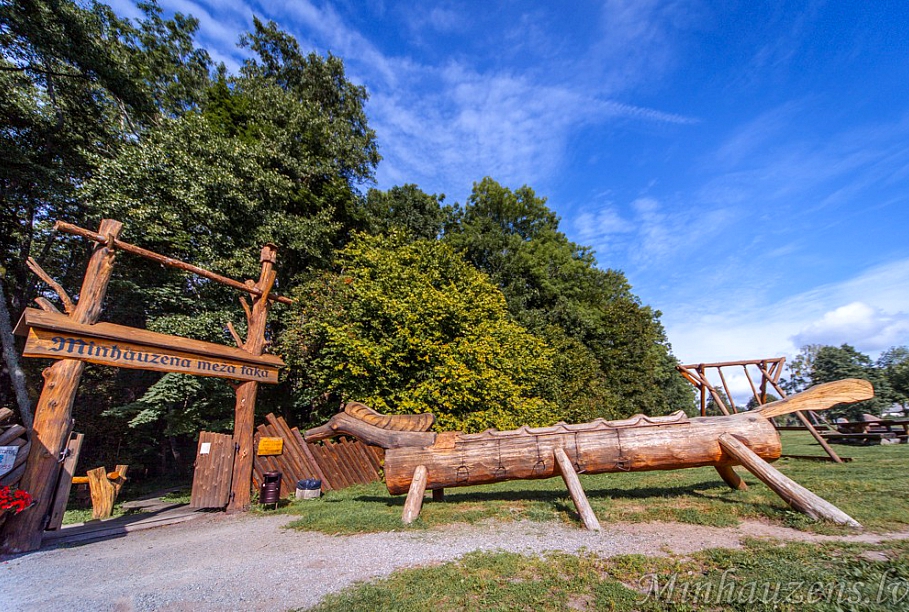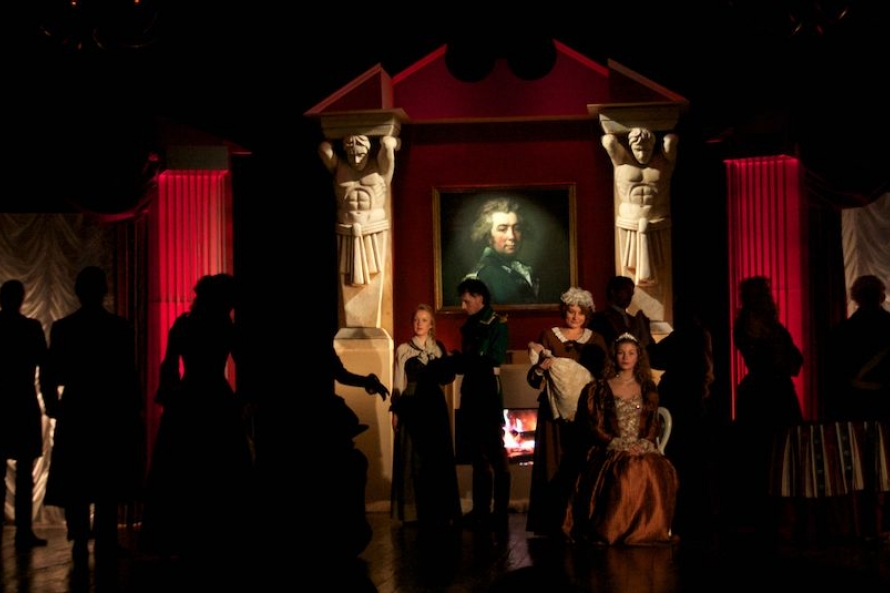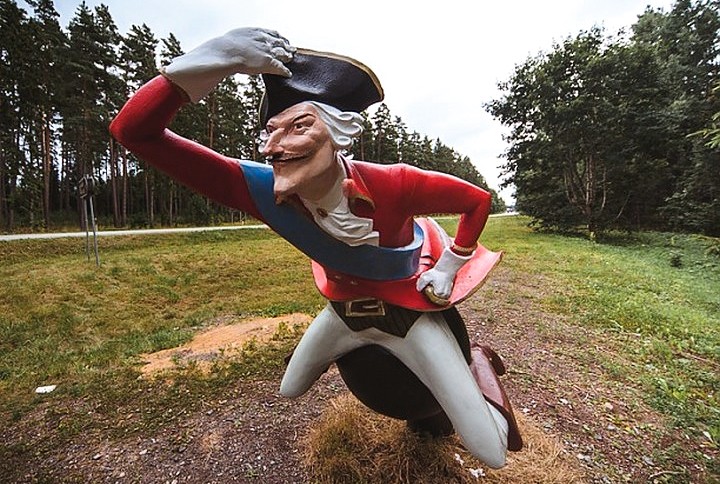A charming storyteller, dreamer and chatterer who enjoyed fantasizing very much, he became known across the globe. Meerschaum pipe in mouth and glass of punch in hand, Baron Hieronymus Carl Friedrich von Münchhausen (1720–1797) would enjoy spinning a tall tale about his escapades and adventures in the Russian Army for his convivial circle of friends, engaging into flights of fancy as he went about telling his stories.
It is thought that he experienced some of these events in Dunte, where a “Münchhausen World” has been set up in honor of the famous Baron of Lies. One of the two Münchhausen museums in the world is located in the refurbished Dunte Manor house – a cannon-shot distance from Rīga – on May 32, 2005. The second is located at Bodenwerder, the town where the baron spent the very first and last years of his life.
Münchhausen met the love of his life in Dunte. During a hunt near the small village about 60 km north of Rīga, he became acquainted with Jacobine von Dunten, the daughter of a Baltic German nobleman. According to the church record, they were married on February 2, 1744.

The Münchhausens lived at the family manor for six years, until 1750 when they went to Bodenwerder. Their marriage was childless and lasted 46 years.
At some point Münchhausen, serving as an officer, was stationed in the Rīga garrison city of the Russian empire. He had been craving adventure from when he was but a boy of noble birth and a page at the court of the Duke of Braunschweig-Wolfenbüttel. At the age of seventeen, he went to St. Petersburg to serve at the court of the prince, took part in the Russo-Turkish war and, from 1740, served in Rīga as a soldier in the Tsar’s army.
The Münchhausens got married at the Pernigel (now Liepupe) Church near Dunte on a snowy winter night. Münchhausen had tied his horse to the church steeple. As the snow had melted through the night, the next morning he had to free his horse from the formerly snow-clad church tower with a precise shot to the bridle. At least that’s what Münchhausen writes in his Wonderful Journeys by Land and Sea.
The author of “marvelous stories” had many other famous adventures in Dunte, and he would boast about them at the village inn. A life-size wax figure depicts Münchhausen catching ten ducks with just a piece of lard tied to a rope as bait. It is possible that the events of his hunting stories, such as the one about Münchhausen fixing a fox to a tree by shooting a nail, or trapping a deer with a cherry tree between its antlers took place when Münchhausen was residing at Dunte.
Other of his adventures are depicted in wooden sculptures that can be visited by tracing a miles-long path in the woods near the museum. A second path takes you to a gigantic wooden tankard. Meanwhile, inside the actual manor you can take a look at Jacobine’s boudoir and Münchhausen’s hunting room. The Great Hall houses countless memorabilia, such as books and poetry translations into different languages, as well as historical documents and objects from Münchhausen’s life and stories. Three of the old oaks in the yard were supposedly planted by the Freiherr himself.
A total of 380,000 visitors have visited the museum since it was unveiled. Many of them arrive from Germany and the Baltics, but Russian tourists frequent the place as well. Thanks to the 1979 film on Münchhausen’s adventures, he remains popular to this day in what was once the Soviet Union. The officer in the Empress’ service who drags himself out of the swamp by his hair is considered a prime example of taking things easy in life.

Some modern culture events testify to the fact that Münchhausen’s life and stories are still resonant in the Latvian consciousness. In summer 2013, a new production of the 1941 play Münchhausen’s Wedding – the love story of the Baron and Jacobine – was staged at the Liepāja Theater. A film about the actual baron’s life in Vidzeme is likewise in the works.
The German Traces series was first published as part of the Goethe Institut in Rīga project “German Footprints in Latvia” ("Vācu pēdas Latvijā" www.goethe.de/vacu-pedas). The linked mobile application "German Footprints in Latvia" can be downloaded at www.ej.uz/vp-iOS and www.ej.uz/vp-Android.



























